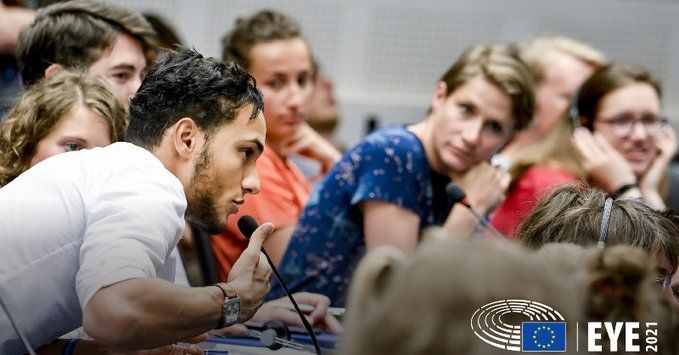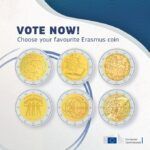Parliament confirmed on Tuesday the decision to organise youth-focused and youth-centric activities and initiatives across all member states in 2022:
-
Focus on including youth in European and national policymaking
-
Young people will co-create year’s programme
-
MEPs ensured budgetary top-ups for Erasmus+ and European Solidarity Corps to finance accompanying initiatives
The 2022 European Year of Youth will focus on re-establishing a positive outlook for European young people negatively affected by the impact of the COVID-19 pandemic. Designating 2022 as a year focused on young people means increased efforts will be made to include youth priorities in relevant EU policy areas and at every level of the EU’s decision-making process . MEPs backed the decision by 604 votes in favour, 25 against and 68 abstentions.
The EYY will aim to engage young people in key consultation processes, such as the Conference on the Future of Europe, and in other public policies at EU, national and local levels. Thanks to a push by MEPs, there will be a special focus on young people with fewer opportunities and on dealing with mental health issues.
The European Year of Youth will include conferences, initiatives promoting youth participation in policy making, awareness-raising campaigns on a more inclusive, green and digital EU, as well as studies and research on the situation in which young people in the EU find themselves.
Improved budget
MEPs secured an €8 million top-up for the Erasmus+ and European Solidarity Corps programmes, to support the activities of the year (a figure previously agreed in the 2022 budget conciliation talks with the Council and adopted by Parliament). Additional funding for the implementation of activities will be found in 2022 from other, relevant EU programmes and instruments.
MEPs added the option to make EU funds available after 2022, in order to secure a lasting legacy for the year.
Quote
“The COVID-19 pandemic continues to disproportionately affect young people”, said rapporteur Sabine Verheyen (EPP, DE) before the vote. “They face the challenges of trying to continue their education and enter the job market (…) make new acquaintances and discover other countries. Young people have accepted and supported the ongoing restrictions out of solidarity. Now it is time to let them flourish”, she said.
“The next year will lay the foundation for giving young people a stronger platform to make their voices heard”, she stressed, adding that we need “all young people to be involved and participate in creating a better, greener, more digital and inclusive future in Europe.”
Listen to the full plenary debate here
Next steps
European Year of Youth activities will be organised by national coordinators in each member state, together with the European Commission and civil society organisations, and will be overseen by the European Parliament. MEPs successfully negotiated that at national and EU levels there will be an obligation to involve young people and youth organisations at the planning stage of activities.
Background
The intention to dedicate 2022 to young people was announced by Commission President Ursula von der Leyen in her 2021 SOTEU address to the European Parliament.







Leave a Reply